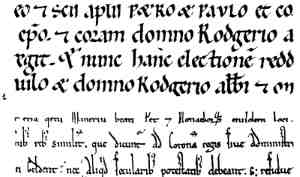Legal regulation of journalism abroad
Journalism law, more widely known as media or mass communication law, centers on freedom of the press. What is the press? What makes the press free or not free? What purpose does or should press freedom serve? These and related questions guide the government in drawing the boundaries of journalism law. Over the years, the individual, societal, or political impact of the press as a social agency has animated journalism law. And new technology in media has added an interesting dimension to the mix. Where do we go from here? What is important at this juncture is examining research on journalism law in an international and comparative law light in order to better understand the realm of journalism law as it is and as it should be.
Freedom of the press is usually discussed in conjunction with freedom of speech. Thus, the theoretical framework of journalism law tends to be subsumed into freedom of speech.
Yet freedom of the press is distinguished from freedom of speech. The former concerns the “institutional press freedom from government control”, while the latter means an individual’s freedom to speak and publish with no interference from the State. Hence, freedom of the press, more often than not, has been analyzed from an institutional perspective.
Press freedom as an institutional concept can be differentiated from journalistic freedom, which revolves around journalists’ autonomy from the executives and editors of their news media. Few libertarian press systems recognize journalistic freedom as such, although some scholars argue for legal rules to protect the freedom of practicing journalists against the media owners.
Every country, whether governed by civil or common law, has its own set of journalism laws.
The sources and objectives of these media laws reflect each society’s political and sociocultural value judgments in weighing press freedom against its competing values. Some countries adopt special laws aimed directly at the press, while others choose indirect press laws. Those laws may or may not derive from a constitutional commitment to a free press. Regardless, a country’s media law hinges not on a constitutional guarantee or a special press statute but on the “political philosophy” that underlies it.
The tradition, culture, and norm of a free press can make a difference in journalism law. Not urprisingly, the authors of an early journalism law book, commenting on press law in France nd Germany of the late 19th century, stated: “In each country it is not so much the law itself asits administration that is complained of. The great central principle of the liberty of the press—freedom from previous restraint—stands unchallenged”.
Journalism law is no different from other laws in that it remains in a state of fl ux. Indeed, journalism, in the sense of reporting, editing, and disseminating news, is changing in its structure and practice. The Internet revolution in communication enables anyone with a computer to communicate with a potential global audience in real time. The “new” journalism of bloggers and citizen reporters challenges the “old” journalism and its law.
The transformative process of journalism law goes beyond technology. It is intertwined with the accelerated globalization of media law. International and comparative law has now taken on an added value as a framework for understanding press freedom. Yet it remains a theoretical challenge to formulate a transcultural media law model. Is media law so countryspecific that its application to other countries is of limited relevancy? Or, because “media law and structures especially in increasingly international or global societies are so much a part of a transnational whole” (Price, 2002, p. 66), will their local differences likely be a nonissue?
It does seem that US media law remains relevant to other countries. This is not necessarily because it is better than other laws but because Americans’ experience with freedom of speech and the press as a right is unusually rich. However, the relevancy of the American law to the rest of the world will likely diminish in the future. As US telecommunication policy scholar Herbert Terry commented in August 2007, “Basically, there’s good reason to suspect that (1) national media law will continue to erode, (2) [that] substantive transnational media law […] will expand, and (3) that such expansion will fundamentally challenge the approaches to freedom of expression that have been pursued in the U.S. for over 200 years”.
With these thoughts in mind, let’s turn to a discussion of the historical context of journalism law, the impact of the law on research, methodological issues, journalism law as a research discipline, and critical issues of journalism law.
Members of the Society of Professional Journalists believe that public enlightenment is the forerunner of justice and the foundation of democracy. The duty of the journalist is to further those ends by seeking truth and providing a fair and comprehensive account of events and issues. Conscientious journalists from all media and specialties strive to serve the public with thoroughness and honesty. Professional integrity is the cornerstone of a journalist's credibility. Members of the Society share a dedication to ethical behavior and adopt this code to declare the Society's principles and standards of practice.
The SPJ Code of Ethics is voluntarily embraced by thousands of journalists, regardless of place or platform, and is widely used in newsrooms and classrooms as a guide for ethical behavior. The code is intended not as a set of "rules" but as a resource for ethical decision-making. It is not — nor can it be under the First Amendment — legally enforceable.
Literature:
1.Bulls A.Y. Modern foreign journalism lectures: studies. allowance. - Ekaterinburg, 2003.
2.Mikhailov S.A. Modern foreign journalism rules and paradoxes. - St.: Izd Mikhailov, VA, 2002.
3. Seibert F.S., Schramm W., T. Peterson. Four media theory, trans. from English. - M., 1998.
4. Laws and the media in Europe, America and Australia. - M., 1998.
| <== предыдущая лекция | | | следующая лекция ==> |
| Constituting society | | | Fundamentals of imageology |
Дата добавления: 2016-07-18; просмотров: 1109;










